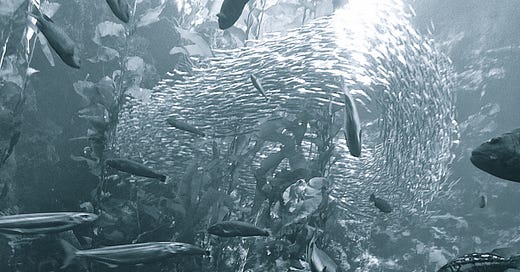—This is the fourth and final post from Part 5 in The Heart Aroused: Poetry and the Preservation of the Soul in Corporate America.
Knowing Both: The Soul and Strategy
The strategic side of the mind, represented by age and experience, plans its life accordingly; it gathers knowledge, it uses cunning and tactics. It can also, at its best, wait patiently and endure hardship for a noble cause. But at the crucial moment, just as it is ready to gather its just reward, the older, experienced side of us will watch helplessly as the eternally innocent and inexperienced young fool, blessed by the grace of luck and youth, simply in the right place at the right time, wanders innocently into the clearing and takes the treasure for which we have worked so hard.
We can see this happen in outer life, when a career man or woman in middle age watches someone new, younger, and inexperienced take the rewards for which he or she has worked long years, but it is also a perfect description of the soul’s relationship to the personality. The soul, forever young, and forever attentive to all the ways it instinctively belongs to the world, outlives the waning vitality of the personality bound by experience.
There is something even more disturbing about this inner relationship between the outer layer of conscious ambition and inner realm of unconscious desire: our personalities can work all the hours God sends to no avail, pushing water upstream on a project that is destined to die no matter what we do. The unawakened yet youthful souls is so entangled with the world and so physically alert, even in unconscious way, to the tug of its own future that it does not need to keep track of every detail in order to find its way in the world.
This is not to say that we do not need the strategic mind in the shape of the older Fionn. The point is that the salmon has to be caught, by hook or by crook, and this is exactly what the strategic mind is for. But for many of us, late in our careers, by the time we get to a final savoring and consummation of the act of living, we have so neglected the young innocent inside us that there is no one let to wander into the clearing at the crucial moment, no one to enjoy the precious fruit of our labors. The glittering treasures lie like lead in our hands.
Wandering Into the Clearing
I remember my own humbling experience of the power of innocence soon after graduating from college in the mid-seventies with a degree in marine zoology, the culmination of a long dream and the beginning of my own new career in the adult world of work. Unfortunately, it was also a culmination of a whole generation of my peers. The market was flooded with life-science graduates. I suddenly realized that all these thousands of new and competitive graduates had grown up watching the same intoxicating Jacques Cousteau television programs as I had, and were now imbibing, as I was, what little oxygen was left in the job market.
Our collective dreams of sailing in the South Seas aboard the research vessel Calypso following the lifestyle of the dolphin were to be dashed. There were simply not enough Calypsos (and judging by the number of graduates, not even enough dolphins) to go around.
In the intensive weeks before my final examinations, I remember waking from my afternoon nap in the zoology library one day (a daily experience), having worked the morning and probably most of the previous night. There before me, as I rubbed my eyes, was the latest edition of Nature, the most prestigious life-science journal in Britain, opened to a picture of a marvelous three-masted sailing schooner, beneath which lay an advertisement asking biology graduates to apply for the position of naturalist guide in the Galápagos Islands.
In the field of biology, there is no more sacred ground than the Galápagos Islands. here, undisturbed by human presence until the last few fleeting centuries, animals and birds have evolved in astonishingly peculiar ways and without fear of human beings. Since Darwin’s voyage on the Beagle to those Pacific Islands and his subsequent development of the theory of evolution, it had become a kind of religious Mecca for biologists. To be a naturalist in the Galápagos Islands was, in effect, the life-science equivalent of becoming “the greatest poet in Ireland.”
Anyone looking from the outside might have thought that I had always followed my own wants and desires. But the essential realization that these wants and desires were central to my destiny had been missing in a truly conscious way. It filled me with a strange mixture of revelation and shame that I had not truly believed in them and that in my pursuit of what I loved I had always had the feeling of stealing time.
I remember muttering darkly to myself that”there are surely five hundred people applying for that job” and I put the magazine to the side. To this day, I still have no idea who put it before me as I dozed.
Keep reading with a 7-day free trial
Subscribe to David Whyte to keep reading this post and get 7 days of free access to the full post archives.





